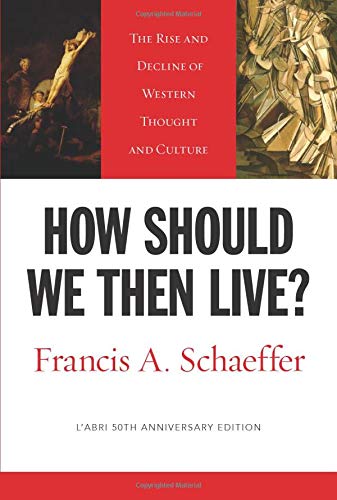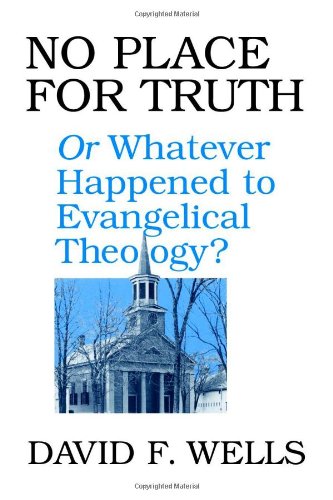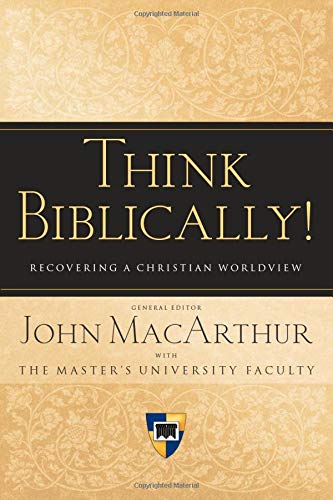Quotes about Postmodernism
If postmodernist claims are objectively true [and if they aren’t, there is no reason why we should believe or accept them], then those claims are themselves the mere products of social forces and so are not objectively true. Of course, if postmodernist claims are not objectively true, then they are just the arbitrary opinions of certain people that we are free to ignore.
If postmodernist claims are objectively true [and if they aren’t, there is no reason why we should believe or accept them], then those claims are themselves the mere products of social forces and so are not objectively true. Of course, if postmodernist claims are not objectively true, then they are just the arbitrary opinions of certain people that we are free to ignore.
Quite simply, it is a fact of history that the church of Christ has not experienced any major nationwide revival under the conditions of advanced modernity. On the other hand, modernity undercuts true dependence on God’s sovereign awakening by fostering the notion that we can effect revival by human means. On the other hand, modernity makes many people satisfied with privatized, individualistic, and subjective experiences that are pale counterfeits of true revival.
In distinct contrast to the widespread conservative fallacy of the eighties, the sharpest challenge of modernity is not secularism, but secularization. Secularism is a philosophy; secularization is a process. Whereas the philosophy is obviously hostile and touches only a few, the process is largely invisible and touches many. Being openly hostile, secularism rarely deceives Christians. Being much more subtle, secularization often deceives Christians before they are aware of it, including those in the church-growth movement. How else can one explain the comment of a Japanese businessman to a visiting Australian? “Whenever I meet a Buddhist leader, I meet a holy man. Whenever I meet a Christian leader, I meet a manager.”
Dining with the Devil: The Megachurch Movement Flirts with Modernity, Baker, 1993, p. 49.
We live in the climate of postmodernism. Western society encourages sin in an enormous extent and resists definition of, or clarity about, sin. Postmodernist philosophy is fiercely antinomian, that is, opposed to law. Right and wrong are judged on the basis of subjective human feelings. The result is a slide into an abyss of lawlessness. The consequences of lawlessness are seen in the alarming increase in family break-up, divorce, crime and overcrowded prisons.
Postmodernism (the thinking of our age) is fiercely antinomian (without law). It is admitted that people make mistakes, but the word ‘sin’ is seldom mentioned and the idea that we all sin against God is avoided. Right and wrong are judged according to human feelings. The idea that God has an unchangeable holy moral law by which he will judge every person is unpopular.
Unlike modernism, postmodernism does not adhere to one fixed rule to determine the universal truth. Instead, it rejects the notion of universal truth altogether. In the postmodern worldview, truth can’t be fully known – and it might not exist in the first place. Instead, all truth claims are evaluated subjectively. What’s true for one person might not be true for anyone else.
Scripture testifies to its own inspiration; it is the Word of God, originating outside of man. This is particularly important to understand in a culture dominated by the subjectivity of postmodernism. Truth cannot be subjective; there is no such thing as your truth or my truth. Truth is forever fixed. Authentic Christianity has always held that Scripture is absolute, objective truth. The Bible is God’s truth regardless of whether a person believes, understands, or likes it. It is a permanent and universal truth, and therefore, is the same for everyone.
He who sups with the devil had better have a long spoon. The devilry of modernity has its own magic: The [believer] who sups with it will find his spoon getting shorter and shorter-until that last supper in which he is left alone at the table, with no spoon at all and with an empty plate. The devil, one may guess, will by then have gone away to more interesting company (Peter Berger).
Once upon a time tolerance was the power that kept lovers of competing faiths from killing each other. It was the principle that put freedom above forced conversion. It was rooted in the truth that coerced conviction is no conviction. But now the new twisted tolerance denies that there are any competing faiths; they only complement each other. It denounces not only the effort to force conversions, but the very idea that any conversion may be necessary. It holds the conviction that no religious conviction should claim superiority over another.
Many of those whose task it is to broker the truth of God to the people of God in the churches have now redefined the pastoral task such that theology has become an embarrassing encumbrance or a matter of which they have little knowledge; and many in the Church have now turned in upon themselves and substituted for the knowledge of God a search for the knowledge of self.
Recommended Books










